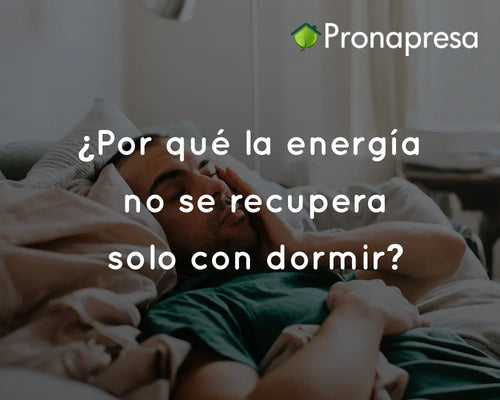
We live in a fast-paced world where daily demands can generate diverse emotional responses. Stress, anxiety, and irritability are commonly experienced reactions, but each has its own causes and manifestations. In this article, we'll explore their differences in depth and how to properly manage them to improve your well-being.
What is stress?
Stress is the body's natural response to demanding situations. It can be caused by work pressures, personal problems, or even positive events like a wedding or a promotion. The body reacts by releasing hormones like cortisol and adrenaline, preparing to face the challenge.
Symptoms of stress
- Muscle tension
- Fatigue
- Headaches
- Insomnia
- Digestive problems
- Irritability
Stress can be positive in small doses, as it motivates us to take action. However, when it becomes chronic, it can seriously affect physical and mental health.
What is anxiety?
Anxiety is an emotional reaction to a perceived threat, whether real or imagined. Unlike stress, which is related to a specific trigger, anxiety can occur for no clear reason and can be persistent.
Symptoms of anxiety
- Palpitations
- Feeling short of breath
- Dizziness
- Recurring and negative thoughts
- Concentration problems
Anxiety can manifest itself in various disorders, such as generalized anxiety disorder or panic disorder. Its impact on daily life can be significant, affecting relationships and work performance.
What is irritability?
Irritability is an emotional response characterized by exaggerated reactions to minor triggers. It can be related to fatigue, hunger, lack of sleep, or even hormonal imbalances.
Symptoms of irritability
- Sudden mood swings
- Impatience
- Hostility
- Low tolerance for frustration
Unlike stress and anxiety, irritability is usually an immediate reaction to an external stimulus, but when it is frequent, it can indicate an underlying problem such as chronic stress or a hormonal imbalance.
Key differences between stress, anxiety, and irritability

How to manage stress, anxiety and irritability?
Strategies to reduce stress
- Physical exercise: Helps release tension and reduce cortisol levels.
- Breathing techniques: Deep breathing activates the parasympathetic nervous system, promoting relaxation.
- Time management: Avoiding the accumulation of tasks reduces the feeling of overwhelm.
- Social support: Sharing worries with friends or family reduces the impact of stress.
Strategies to manage anxiety
- Meditation and mindfulness: These practices help maintain focus on the present and reduce negative thoughts.
- Balanced diet: Avoiding excessive caffeine and sugar consumption can stabilize the nervous system.
- Regular exercise: Releases endorphins, which improve mood.
- Psychological therapy: A mental health professional can provide strategies to effectively deal with anxiety.
Strategies to control irritability
- Adequate rest: Sleeping between 7 and 9 hours a day improves your mood.
- Managing stress: Meditation and exercise can reduce stress-related irritability.
- Avoid unnecessary stimuli: Reduce exposure to situations or people that trigger intense emotional reactions.
- Practice patience and empathy: Learning to manage emotions helps you respond better to challenging situations.
The importance of identifying and managing each one
Understanding the difference between stress, anxiety, and irritability is essential to improving our quality of life. Each of these conditions has its own causes and symptoms, so applying specific strategies for each can make a significant difference to our well-being.
Adopting healthy habits, such as meditation, exercise, and a balanced diet, can help you better manage these emotions and reduce their impact on your daily life. Remember that self-care and professional support are valuable tools for maintaining emotional and mental balance.
If you find that these emotional states are significantly affecting your life, don't hesitate to seek help. Your well-being is a priority, and understanding how to manage stress, anxiety, and irritability will allow you to live with greater peace and harmony.























































